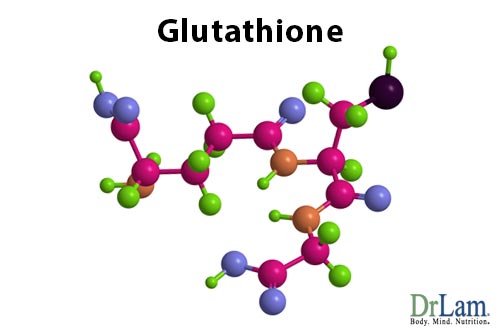
 Methyl-tetrahydrofolate reductase (MTHFR), is an enzyme that is responsible for protein methylation in every single cell in your body. If you have a history of multiple miscarriages, chronic migraines, irritable bowel syndrome, depression, or a family history of heart attack or stroke, this little enzyme might be the cause of your illness.
Methyl-tetrahydrofolate reductase (MTHFR), is an enzyme that is responsible for protein methylation in every single cell in your body. If you have a history of multiple miscarriages, chronic migraines, irritable bowel syndrome, depression, or a family history of heart attack or stroke, this little enzyme might be the cause of your illness.
MTHFR’s function in your body is to methylate your cells, but what is this exactly and how does it work? Methylation is the process of adding a methyl group, one carbon and three hydrogens, to a compound. Methylation has its hands in many processes, including cellular repair, where it plays a major role in the synthesis of nucleic acids and the production of DNA and mRNA. It helps with neurotransmitter production and detoxification by converting amino acids from one form to another. Methylation is crucial in the formation and development of red blood cells, white blood cells, platelets, and the maintenance of a healthy immune system.
The enzyme MTHFR can therefore create, convert, and alter compounds within your cells by activating the methylation process. There are more than fifty variants of MTHFR; the most common are 677T, 1298C, or a combination of both.
Some of these variants may block the methylation process, resulting in disease. For example, the variant 677T is most commonly associated with cerebral vascular accident (stroke), elevated homocysteine, cardiovascular disease risk, peripheral neuropathy, deep vein thrombosis, early-onset heart disease, stillbirth, neuro-tube defect, cleft lip, and preeclampsia. Conditions associated with variant 1298C include fibromyalgia, chronic fatigue, schizophrenia, chronic migraines, and irritable bowel syndrome.
MTHFR has two forms, heterozygous or homozygous. People with a heterozygous MTHFR have one normal gene and one altered gene. As a result, the enzyme activity decreases almost by forty percent.
People with homozygous MTHFR, have anomalies in both the genes, which means that the enzyme activity can drop by as much as ninety percent. The methylation rate of the cells is severely diminished to about ten to twenty percent of normal.
Aggravating factors for MTHFR include heavy metals exposure from amalgams, mercury-laced fish, aluminum cookware and occupational hazards as well as a diet high in processed and hydrogenated foods. Anesthesia, diabetes, lymphoma can also be factors that aggravate MTHFR.
MTHFR sufferers also in general have problems clearing metals, including lead, mercury and aluminum. This is due to the body’s inability to clear toxins on a timely basis. Symptoms seem to progress with time.
The problems associated with MTHFR and methylation can also be related to a COMT mutation. The COMT gene catechol-O-methyltransferase helps to break down and expel substances that have a catechol structure. This includes chemicals in the brain called neurotransmitters (NTs) like dopamine, epinephrine, and norepinephrine. Any change in the COMT gene may cause the body to be slower to deactivate and expel these chemicals, which can lead to changes in stress reactions. If you have this mutation, you may find yourself experiencing more stress for longer periods than the people around you due to higher than normal levels of these chemicals. COMT enzymes are also involved in metabolizing the female hormone estrogen and any gene alteration may cause estrogen dominance.
At this stage, there’s no evidence that COMT mutations affect MTHFR mutations. However, anomaly of the MTHFR gene may lower the expression of COMT genes. This means, the presence of both mutated COMT and mutated MTHFR genes, together, may worsen the problem. That’s why it’s important to get tested for both mutations if you experience issues with stress reactivity.
If you fall under any of the following categories, you may consider screening for potential MTHFR mutation.
 A blood test can include common laboratory serum tests such as liver enzymes, ferritin and homocysteine levels. The genetic testing can include the MTHFR profile. Glutathione level is usually found low. The B12 level may be high because the body is unable to utilize the unmethylated form. A urine analysis can be helpful; it may show heavy metal challenges to be positive and urine organic acid may be present. A Toxic Screening test may show excessive amounts of toxins present.
A blood test can include common laboratory serum tests such as liver enzymes, ferritin and homocysteine levels. The genetic testing can include the MTHFR profile. Glutathione level is usually found low. The B12 level may be high because the body is unable to utilize the unmethylated form. A urine analysis can be helpful; it may show heavy metal challenges to be positive and urine organic acid may be present. A Toxic Screening test may show excessive amounts of toxins present.
Just because you have the mutation does not mean you will show symptoms or develop conditions associated with MTHFR. Not all MTHFR sufferers need to be treated. Many have a marginal expression of MTHFR and lead a normal life.
If you learn that you do have significant MTHFR variants that are symptomatic, supplementation with the activated form of folate (vitamin B9) and B12, also known as methyl folate and methylcobalamin respectively, is recommended.
Methylcobalamin, commonly referred to as vitamin B12, is naturally found in foods such as meat, seafood, and dairy products. As long as the correct dosage is titrated, methylated vitamin B12 is safe for most people and may be taken as a nutritional supplement. Methyl B12 is best taken as an intramuscular shot, nasal spray, or sublingually in high doses. However, beware that if you have a concurrent COMT mutation, it might be best to not take too much methyl B12, but a combo of hydroxy or adeno B12.
Excessive vitamin B12 supplementation can cause anxiety, jitters, rapid heart rate, heart palpitation, and fatigue. Most of these side effects are mild, but, medical evaluation is recommended to avoid serious side effects and should be treated under supervision. Every individual requires specific nutrients tailored to their needs and exact dose should be given for minimal side effects.
A high dose of methyl folate can be taken orally under strict physician supervision. This dose, however, comes with serious side effects including anxiety, irritability, palpitations, acne, rash, sore muscles, achy joints, insomnia, nausea, headaches, and migraines.
On top of oral supplementation, prescription medications are also available. Drugs such as MetanX, Deplin, and CerefolinNAC contain methyl folate and may be beneficial.
Treatment of MTHFR also needs to be directed towards toxin control if the body is strong enough to handle it. This is important because the body’s toxic load and toxin clearance capability are reduced. Household chemicals, such as artificial scents, cleaners, and pesticides should be avoided. Chronic chemical exposure should be curtailed as much as possible. Use safe chemicals and organic pest control chemicals whenever possible.
From a diet perspective, it is important to avoid hydrogenated fats and processed foods. Increased consumption of fruits and vegetables are vital to alkalize the body and help the liver metabolize normally.
 One reason that MTHFR variants are linked to a variety of illnesses is their common pathway and connection to glutathione production. Glutathione is the body’s main detoxifying agent and intracellular antioxidant. Glutathione is also called the master recycler as it recycles other vitamins such as vitamin C and E. People with MTHFR anomalies typically present with lower levels of glutathione. This makes them more susceptible to toxins, which can lead to liver congestion.
One reason that MTHFR variants are linked to a variety of illnesses is their common pathway and connection to glutathione production. Glutathione is the body’s main detoxifying agent and intracellular antioxidant. Glutathione is also called the master recycler as it recycles other vitamins such as vitamin C and E. People with MTHFR anomalies typically present with lower levels of glutathione. This makes them more susceptible to toxins, which can lead to liver congestion.
Supplementation of glutathione is therefore very important in all suspected MTHFR conditions. Since oral glutathione is poorly absorbed, a liposomal form using nanotechnology is recommended. N-acetylcysteine (NAC) or alpha-lipoic acid may also be taken, but they are not very effective.
In many cases where MTHFR is mild, oral glutathione supplementation alone is sufficient to effect dramatic improvement. This is particularly relevant to those who are weak or when methylated B12 or methylated folate may be too strong a therapy to be considered.
In terms of supplementation, adjunct supplements can be helpful provided that the body is healthy and strong. These include methyl donors (such as DMG, TMG, betaine), fatty acids to help reduce inflammation (such as fish oil, flax seed), minerals (such as zinc, magnesium), herbs that support liver detoxification (such as milk thistle), vitamin C, and amino acids. They do not apply to those with advanced Adrenal Fatigue Syndrome (AFS).
AFS represents the neuroendocrine deregulation of the body under excessive physical and emotional stress. Common symptoms include fatigue, insomnia, and lethargy. Symptoms in advanced stages can include hypoglycemia, heart palpitation, depression, anxiety and loss of libido. Sufferers usually have a wide variety of non-specific complaints that seem to defy conventional medical wisdom because laboratory tests are usually totally normal.
It is unknown whether MTHFR is associated with AFS or not. If it is indeed associated the degree of correlation is also unknown. More research is necessary.
As many AFS sufferers are hypersensitive to nutritional supplementation, they may have side effects on using methylated folate and B12. Those that have mild AFS with moderate symptoms can try this supplementation under proper supervision. If the presence of the MTHFR variant is suspected, they may stop the supplementation leading to a quick resolution. No improvement on the other hand would suggest that MTHFR may not be the dominant cause of fatigue even if MTHFR testing is positive. Overaggressive use of methylated folate and methylated B12 is a common recovery mistake in those with AFS as they can mask the underlying problem and worsen AFS. Energy output may be up, but the underlying adrenal weakness is overlooked.
Those with advanced stages of AFS need to be very cautious because they usually respond quite differently. Because of their already highly sensitized bodies and a low threshold of stimulatory excitation response, any product including methylated folate or methylated B12 can further increase an excitation response and trigger an adrenal crash. The more advanced the AFS the higher the risk. Always proceed under the guidance of a health care professional.
 Alternatively, a much gentler way to approach MTHFR deregulation if suspected in both mild and severe AFS cases is to start with liposomal glutathione. Glutathione is part of the pathway of many methylation enzymatic responses. As mentioned earlier, most MTHFR sufferers are found to have low glutathione. Supplementing with glutathione, therefore, is a direct and gentle way to overcome MTHFR without causing excitation and unintended negative consequences.
Alternatively, a much gentler way to approach MTHFR deregulation if suspected in both mild and severe AFS cases is to start with liposomal glutathione. Glutathione is part of the pathway of many methylation enzymatic responses. As mentioned earlier, most MTHFR sufferers are found to have low glutathione. Supplementing with glutathione, therefore, is a direct and gentle way to overcome MTHFR without causing excitation and unintended negative consequences.
The additional benefit of glutathione is its ability to detoxify the liver. This makes glutathione not only directly helping with the methylation process without much aggression but also indirectly supporting the detoxification process. We believe that this is a much gentler first step approach. Methylated B12 and methylated folate can be added if and when the body is strong and stable.
"Thank you so much for all of your help, Dr. Lam!"
"Thank you so much for all of your help, Dr. Lam! You are amazing! I am going to read everything you recommended to me! I really appreciate you taking the time to help me! I will be in touch!"